4.2 Communication styles
Personality and the four social styles
From the four temperaments of Hippocrates to the sophisticated modelling of Katherine Briggs and her daughter Isabel Myers (MBTI), personality typing has long been used to explain how people behave in social settings.
Common to all archetypes is the understanding that, at any given time, someone can express a variety of ‘types’, but people inevitably feel most natural in one.
Presented here is a personality taxonomy that draws on the work commenced in the 1960s by industrial psychologists David W. Merrill and Roger Reid.
The Merrill-Reid model considers personality as a function of an individual’s assertiveness and responsiveness.
Assertiveness refers to the degree to which a person attempts to control situations or the thoughts and actions of others.
A highly assertive person, for example, might be always telling others what to do, whereas an unassertive person (or someone with ‘low’ assertiveness) will prefer asking others first.
Responsiveness refers to the readiness with which a person outwardly displays emotions or feelings and develops relationships.
Whereas a highly responsive person might be considered quite emotive, a person at the opposite end of the spectrum (low responsiveness) is assumed to be very self-controlled.
As you can see in the model below:
- A person who is low in both assertiveness and responsiveness is analytical
- A person who is low in responsiveness but highly assertive is a driver
- A person who is low in assertiveness but highly responsive is amiable
- A person who is both highly assertive and responsive is expressive
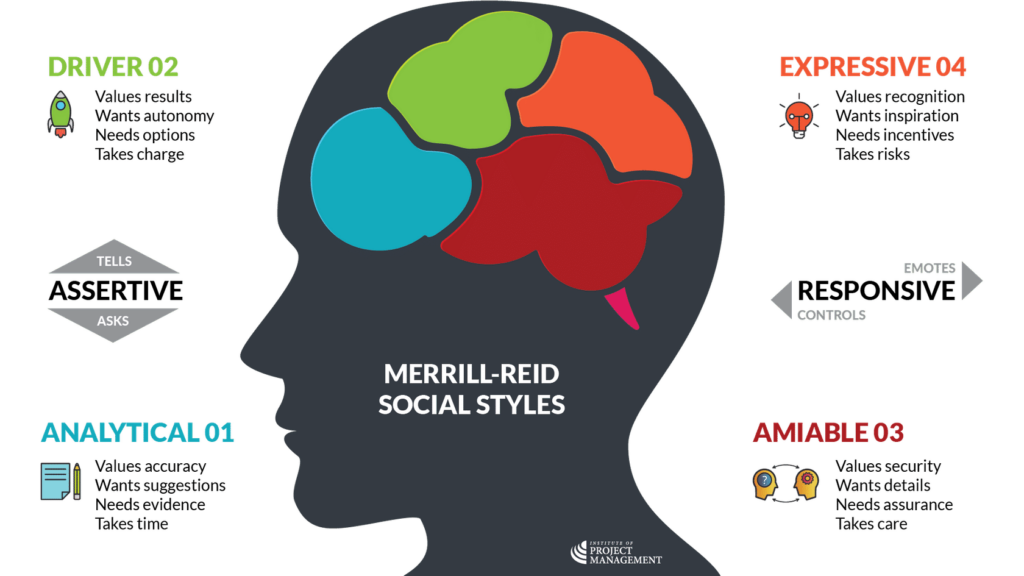
The analytical person is a technical specialist who…
- …likes organization and structure
- …dislikes involvement
- …asks specific questions
- …prefers objective, task-oriented, intellectual work
- …wants to be right, so collects lots of data
- …works slowly, precisely and independently
- …seeks security and self-actualization
- …has good problem-solving skills
The driver is a control specialist who…
- …is decisive in action and decision-making
- …likes control; dislikes inaction
- …prefers maximum freedom to manage self and others
- …is cool, independent, and competitive with others
- …has a lower tolerance for the feelings, attitudes, and advice of others
- …works quickly and impressively alone
- …seeks esteem and self-actualization
- …has good administrative skills
The amiable person is a support specialist who…
- …is slower in making decisions or taking actions
- …likes close, personal relationships
- …dislikes interpersonal conflict
- …supports and actively listens to others
- …seeks security and identification with a group
- …has good counseling and listening skills
The expressive person is a social specialist who…
- …is spontaneous actions and decisions
- …likes involvement
- …exaggerates and generalizes
- …tends to dream and get others caught up in those dreams
- …jumps from one activity to another
- …works quickly and excitedly with others
- …seeks esteem and group identification
- …has good persuasive skills
Communication strategy
As a project leader, you should be willing to adjust your communication strategy to any situation or context.
To get the most out of others, this includes modifying your behavior and approach in response to the personality style they are expressing in the moment.
To do this effectively, you will need to:
- Observe – Listen and watch for personality cues; be open to someone else’s style, values, and perspective.
- Adapt – Find common ground with someone who is different; this could be your speed of speaking or the terms you use (for example, talking about facts vs. feelings).
- Connect – Watch for body language and get feedback from others to see if you are being understood; check your own thoughts/feelings. Do you feel harmony or discord?
So, how should you communicate with each of the four social archetypes?
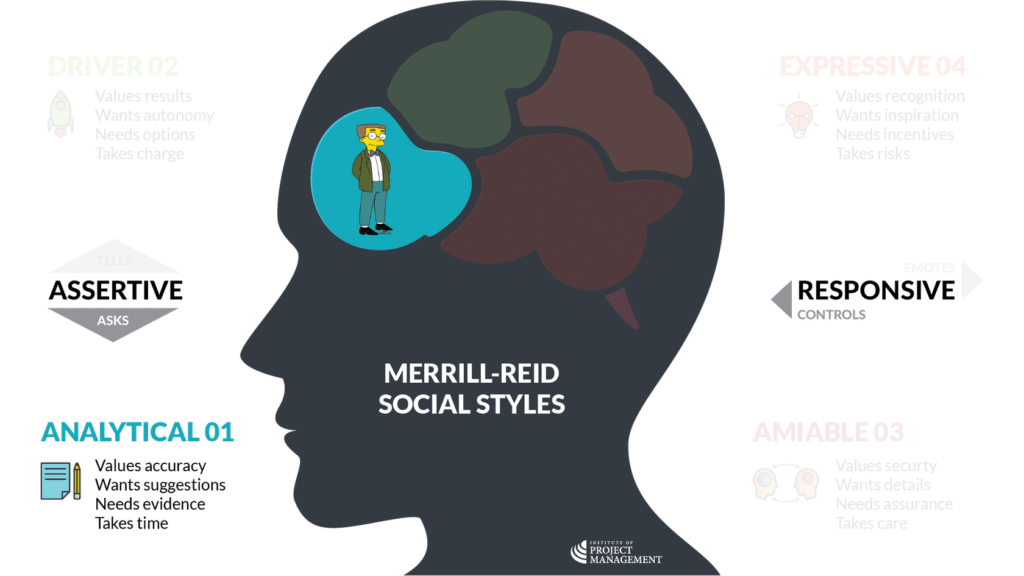
When communicating with analytical people…
- Be systematic, thorough, deliberate, and precise
- Focus on the task
- Be prepared to answer many “how” questions
- Provide analysis and facts
- Don’t get too personal
- Recognize and acknowledge the need to be accurate and logical
- Don’t rush unnecessarily
- Expect to repeat yourself
- Allow time for evaluation
- Use lots of evidence
- Compliment the precision and accuracy of the completed work
If you are analytical yourself…
- Speak more and smile more
- Show appreciation and personal interest
- Relax; share information and be open to others
- Reflect the enthusiasm of others
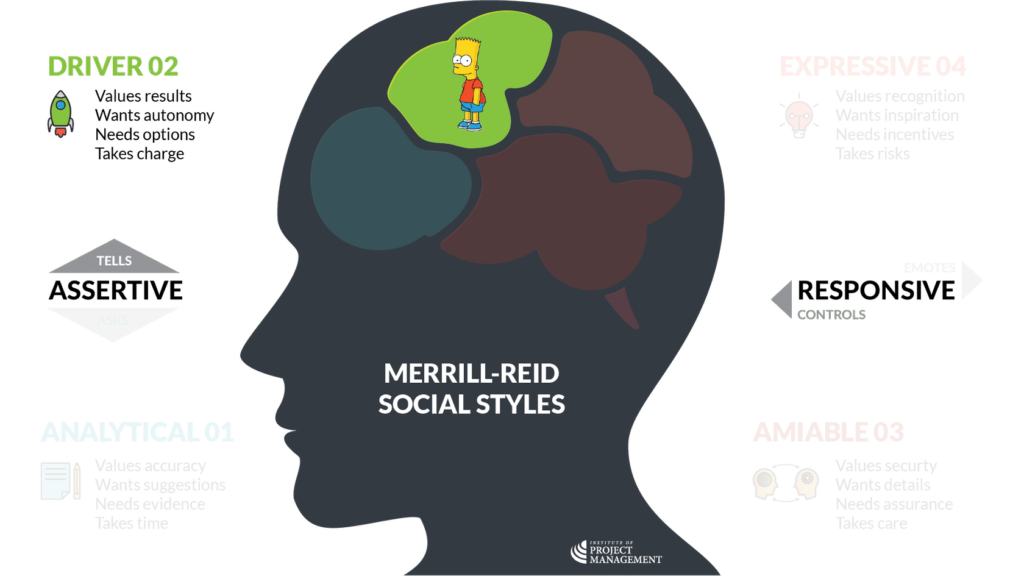
When communicating with drivers…
- Focus on the task
- Talk about expected results
- Be businesslike and factual
- Provide concise, precise, and organized information
- Discuss and answer “what” questions
- Argue facts, not feelings
- Don’t waste time
- Don’t argue details
- Provide options
If you are a driver yourself…
- Slow down with “slow” people
- Take time to listen to the ideas of others
- Hold back from dominating; relinquish some control
- Show more patience and act more relaxed
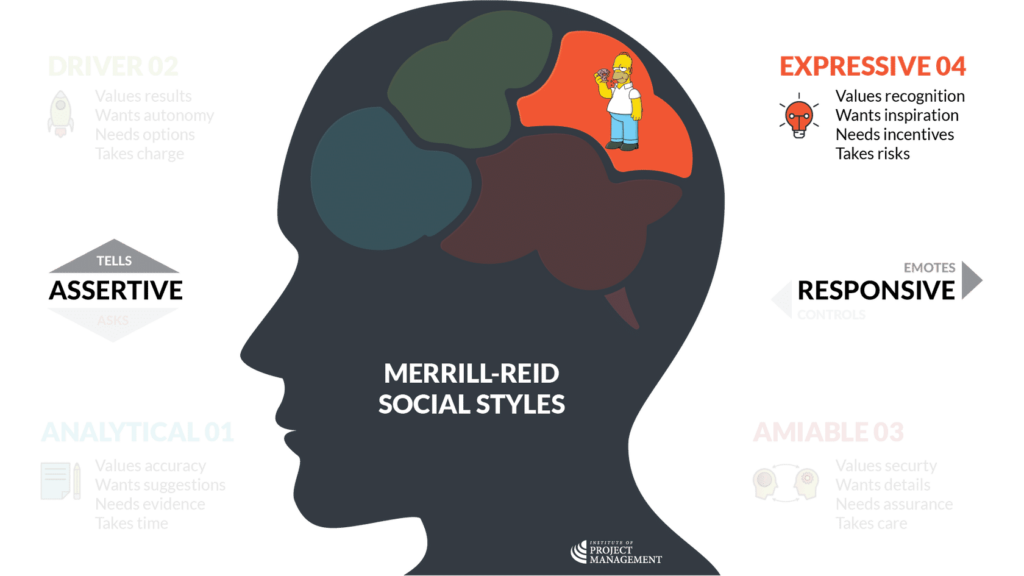
When communicating with expressive people…
- Focus on developing a relationship
- Try to show how your ideas will improve his or her image
- Be enthusiastic, open, and responsive
- Relate to the need to share information, stories, and experience
- Be forthcoming and willing to talk
- Ask and answer “who” questions
- Remember to be warm and approachable at all times
- Work to minimize his or her direct involvement with details or personal conflict
If you are expressive yourself…
- Listen more; slow down, relax
- Write things down; set specific goals
- Check details and stay calm
- Learn to concentrate
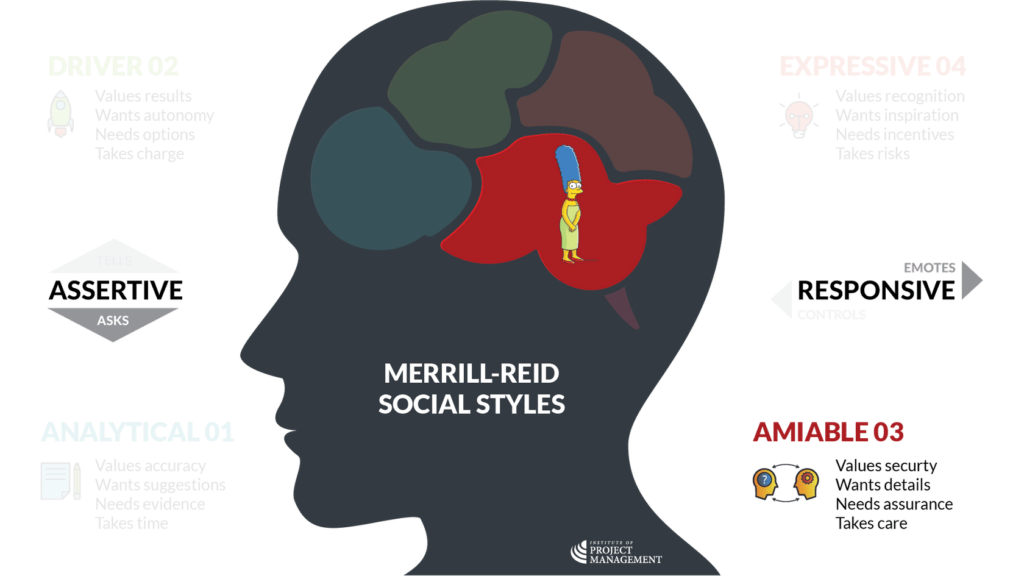
When communicating with amiable people…
- Be relaxed and agreeable
- Maintain the status quo
- Be logical and systematic
- Create a plan with written guidelines
- Be prepared to answer “why” questions
- Be predictable
- Agree clearly and often
- Use the word “we”
- Don’t push or rush
- Compliment him or her as a team player
- Be a good listener
If you are amiable yourself…
- Speed up with “fast” people
- Talk more, listen less
- Take control occasionally; be assertive
- Take some risks
